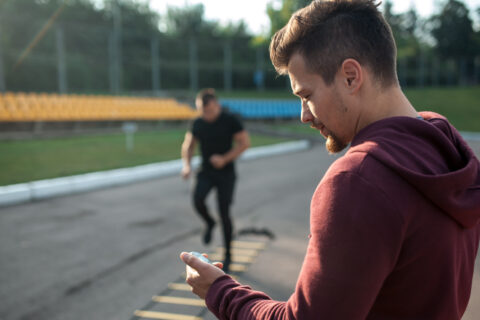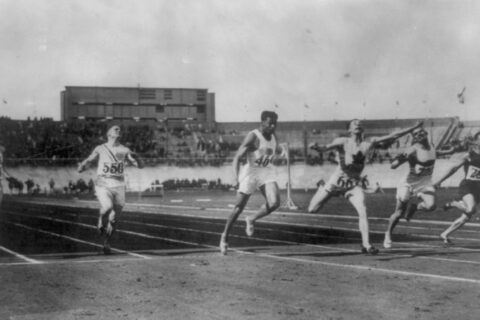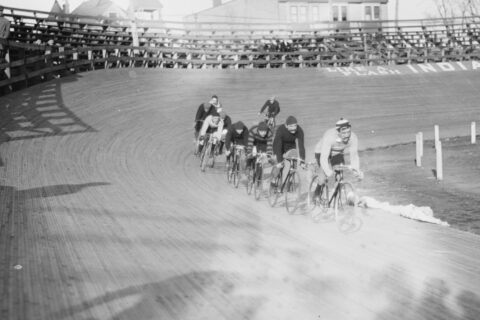Siren Seiler discusses the growth that came with detaching running from her identity.
Video Transcript
Siren Seiler 0:02
So I ended up starting at this Norwegian School of Sport Sciences, and the first year here is very versatile. We have a lot of sport courses, like we did football and tennis, volleyball…
Dr. Stephen Seiler 0:20
Cross-country skiing.
Siren Seiler 0:21
Yeah. Swimming. And you have to do all of these sports to pass the course. So, like, we had maybe two by 90 minutes per week of a specific sport and then we would get, like, almost get graded in there. Just pass and fail, like different assignments. So basically, it’s hard to combine with high-mileage running or cycling or any other sport that takes a lot of energy, because you have to give a lot of energy to the courses. So I found myself—it was very fun. And I enjoyed it because it was different. And I just, I think I needed the break from feeling like I had to be “the runner;” like, this sort of attachment to a particular identity, I think. And when you don’t have that you’re not really sure. “Okay, so what am I now?”
Dr. Stephen Seiler 1:21
“Who am I?” Yeah, “Who am I, what am I?” Right.
Siren Seiler 1:24
But then I tried to, like, I tried to focus on who I was because all of these people that I met, they didn’t know my past. They didn’t know my eating disorder past, like, or me as a dancer, me as runner, like, I was kind of starting over, which was very nice. So then I focused on just being me and I said I ran and I had done some good races and—but I’ve been injured and, like, so I kind of lowered all sort of expectations on myself. And that was very nice. But it was also quite challenging to try to run close to 100 kilometers per week and then do these sports because the question didn’t quite…
Dr. Stephen Seiler 2:14
But you were getting better. Because even deciding that you could do, you could do that at all, compared to a couple of years earlier—three years earlier—would have been impossible. So you were able—you know, you were coming out of the eating issues, you were gaining a bit of weight; things were moving in the right direction. And you did meet a young man who initially you said, “Well, he’s just a friend,” you know, but he kept coming up in the discussion. You know, this friend of yours was coming up in pretty much every text message. Not every, but a lot of ’em. So Dad is being the smart guy and was thinking you know, okay, I think this guy is more than just, you know, someone that’s helping you out with your strength training.
Siren Seiler 3:03
[Laughs] Yeah. Well he did, he did actually help me with my strength training, which I thought was pretty good. But it—and it turned out being it wasn’t very good in having much harmony in my strength programs. I think that was the first time I felt like someone—or I was kind of being looked at as just Siren. Like, he didn’t care about me being a runner, or he cared but it didn’t define me or it didn’t define the way he thought of me. So I think that was…it was probably when I felt like I was being myself fully again. And I hadn’t felt that in probably since before I got very sick. I had a—I got a new, like, spark for—I realized that, okay, running is just a part of my life, it’s not my whole life. And having these people you love and care about and having friends, having family, that’s the most important things. And then all these things we choose to do. That’s just that, we just choose to do it and we get to do it so I tried to change my perspective on sports and on running most of all.
Dr. Stephen Seiler 4:27
Your biology was changing. Your brain was—you know, I’m gonna say weird, you know, kind of…but let’s say your brain was healing.
Siren Seiler 4:37
Yeah.
Dr. Stephen Seiler 4:37
Your brain was normalizing from a standpoint of energy availability.
Siren Seiler 4:41
Yeah it was.
Dr. Stephen Seiler 4:42
I think that was a necessary precondition to even be able to see the boy, to be the person who wasn’t just a runner. Also, it’s kind of difficult to separate these two, but things started coming together in a way that in exactly a year ago, over the dinner table, Christmas Eve—that’s when I knew as a father that all my daughter is back. That I recognize my daughter completely and fully again. The girl that I have been part of and raised and seen with her mother up until a certain age, 16-17 or so. So you were just yourself again, mentally. You were being sarcastic at the dinner table, you were messing around with your brother…you know just—you were in the, you were open and out, and being able to see everybody.



